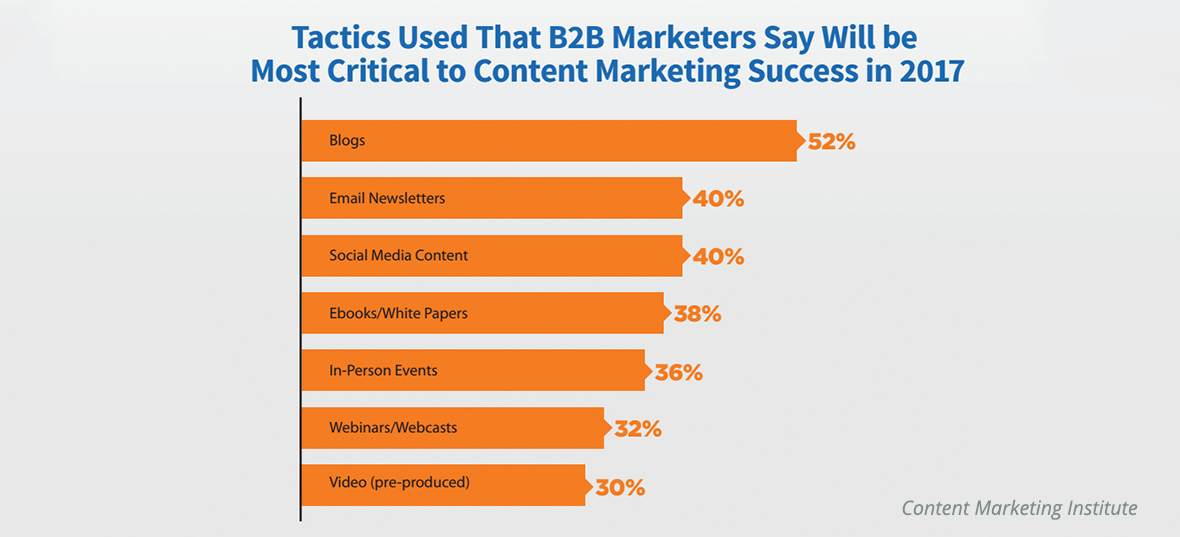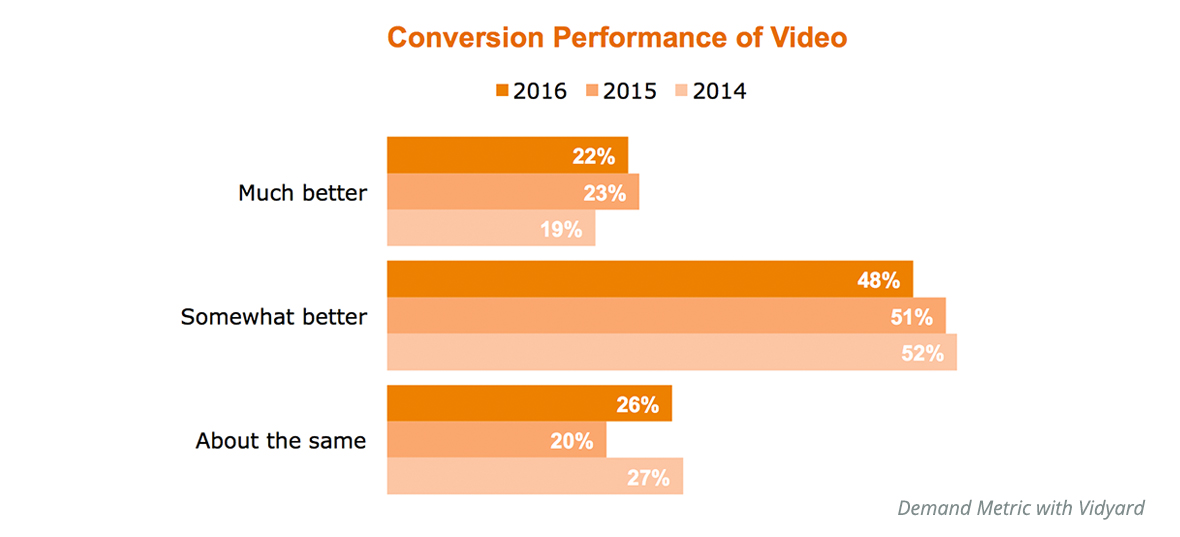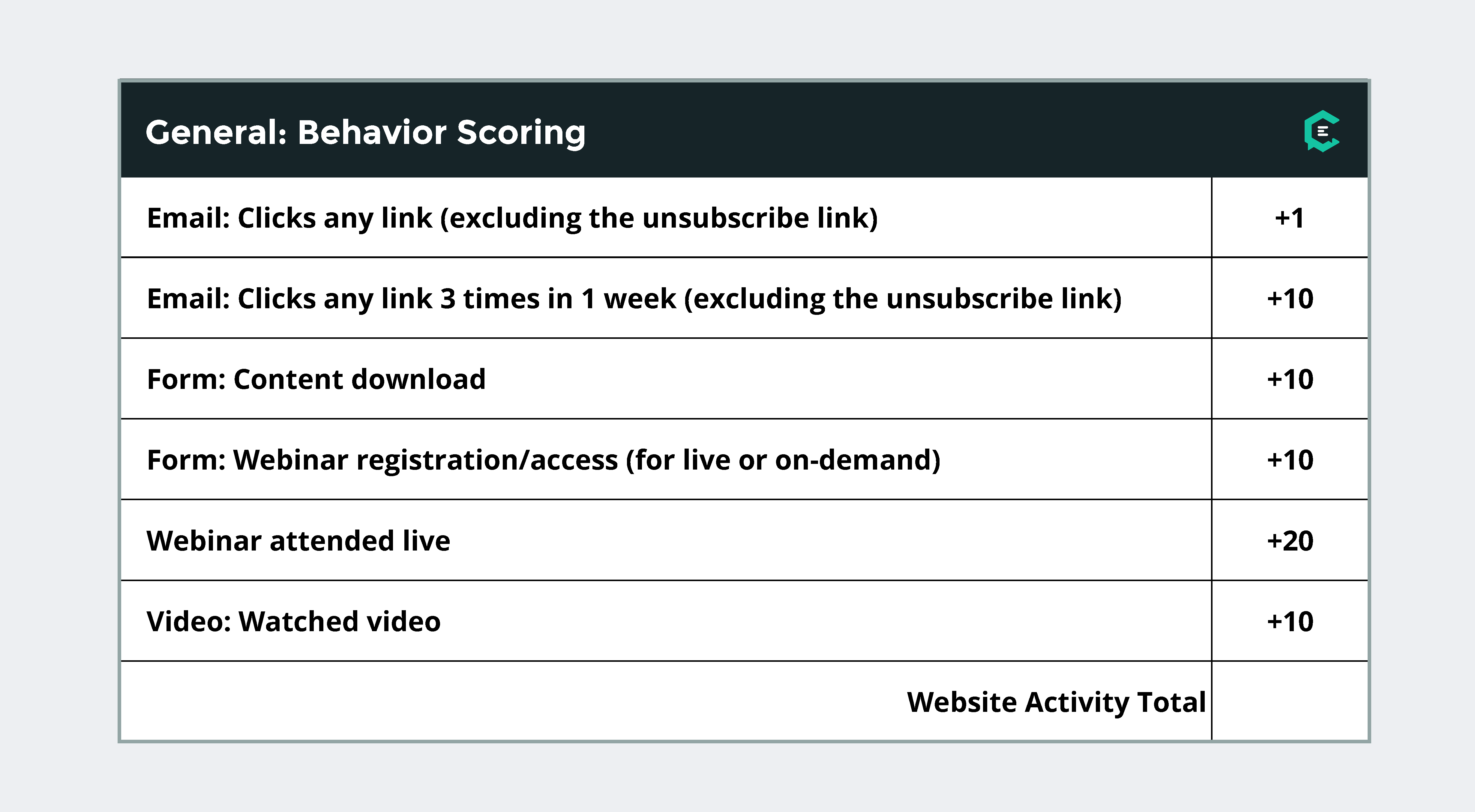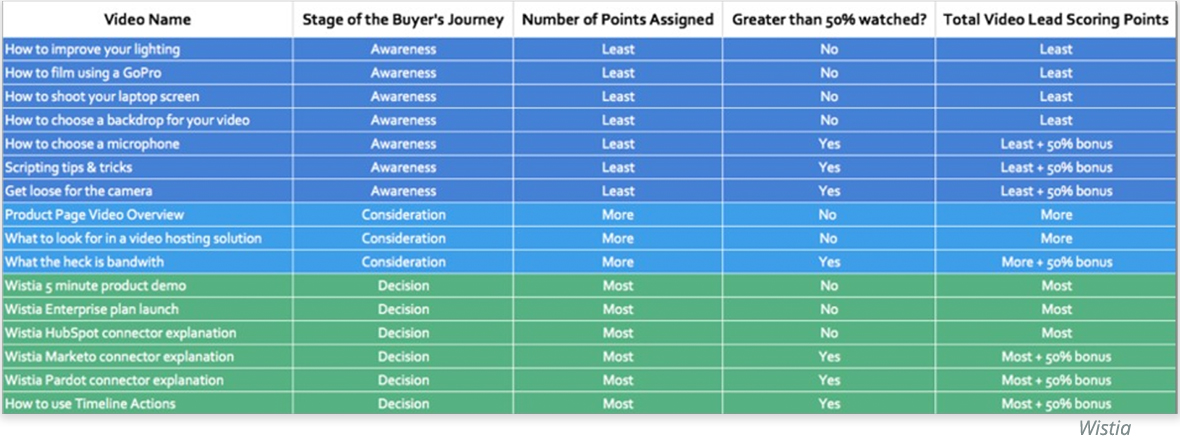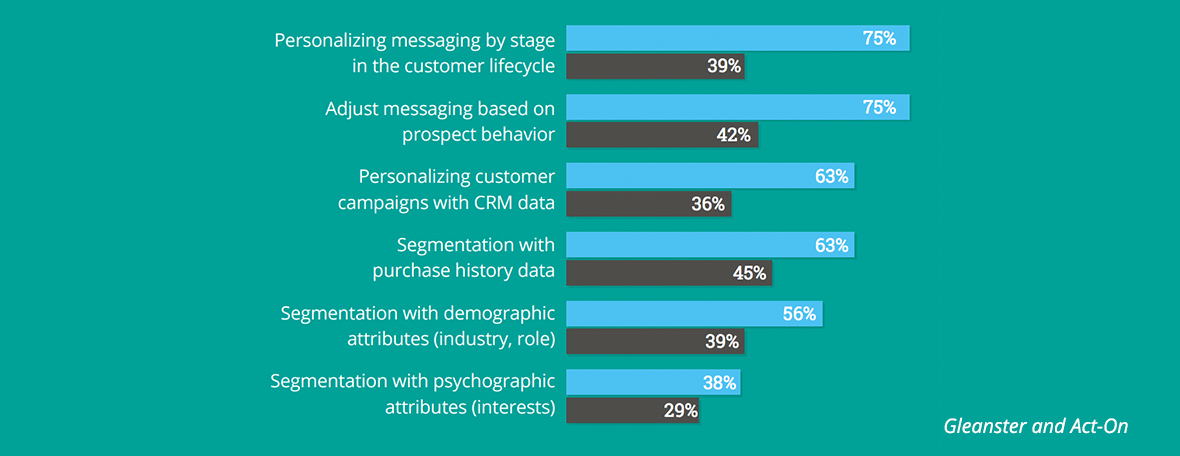Remember that nasty “blogging is dead” rumor that was going around? All lies.
Blogging isn’t going anywhere. Content Marketing Institute backs this up, reporting that blogging will be the most critical tactic to marketing success in 2017.
Gaining subscribers is key to long-term success. This level of interest is much more than a nod of approval for the company’s content — it can also convert prospects into customers and create brand advocates.
Even knowing what’s at stake, many marketers are still leaning on the same blog subscriber strategy, an impersonal newsletter, when this is a golden opportunity for personalization.
So get ready to breathe new life into your blog subscriber programs with one of your favorite marketing tools: marketing automation.
Less friction is always better with a blog subscriber form
The form is step one, and typically, less is more with your form fields. But if you want to personalize your content, try snagging a first name in addition to an email. For those using a CRM, it would be wise to grab the last name too to keep your data squeaky clean.
Most blog subscribers want to be in and out, so unlike a landing page, refrain from asking too many questions. You don’t want your form to scare off blog subscribers.
You can get the insights you need for personalization with your marketing automation platform. You already hooked them, and they are likely in it for the long haul. How they engage with your content will tell you a lot.
Make a memorable first impression with a welcome video
Before we jump into marketing automation details, let’s look at the first impression.
Now that video has been a commendable content marketing tactic for a few years, we’re starting to see strong data that supports its ability to engage and convert.
Video marketing is becoming so accessible now with great platforms, like Vidyard and Wistia, that integrate with your marketing automation system and include CTAs for exclusive subscriber content.
Instead of a ho-hum welcome email, a welcome video will set you apart from the competition. When you’re using a video platform, you’ll catch a glimpse into the prospect’s behavior based on how long they stay engaged with the video, or whether or not they download the content offer.
This plays into behavior scoring (i.e., a subscriber who opens the welcome video email AND downloads the content at the end gets more points than someone who does one or neither of those actions).
Use behavior scoring to personalize your content outreach
The type of content prospects consume can be scored many ways, depending on company objectives. For example, if you are a company that works with multiple industries or services, you may want to assign points based on these types of content.
As always, strategy first. Start with a behavior scoring strategy to outline what you are hoping to achieve through this extra effort at personalization.
Meet with your team to decide which behavior merits what score, covering everything from page visits to social media clicks to the type of content you are offering. Typically, deeper educational content (like a video) scores higher than a regular blog post.
While a behavior scoring model might seem intimidating, a simple spreadsheet or Word table will suffice to show the breakdown clearly to align marketing and sales. How many behavior fields you include will depend on your company’s marketing efforts and objectives.
Here is a what one section of a simplified behavior scoring model might look like:
Naturally, if you’re working a multitude of channels and content tactics, the more robust your behavior model will need to be.
For example, if you’re a video marketing power player, you can score videos based on the stage of content and duration behavior. Here’s a great lead scoring model by Wistia:
Segment content by stage to move your prospects
Most companies use blogs as a channel to drive top of funnel/awareness content. That doesn’t mean everybody is in that early stage, so you can absolutely experiment with segmented nurture programs for subscribers based on the scoring homework you did.
Segmenting content by stage is a common way to move prospects through the buying cycle, but you want to tread lightly with a blog. Webinars or events are great mid-stage content to work with to take your blog subscribers to the next stage, without going overboard with something too far down the funnel — like a demo.
Again, this should tie back to your behavior scoring model. If someone subscribed to your blog, never opened an email or read a blog beyond that first day they subscribed, they probably don’t need to hear about your super amazing webinar.
In this Rethink Marketing Report by Gleanster and Act-On, top performers increased relevance and engagement through segmentation and behavior-based content. When it comes to personalization tactics, marketers frequently rely on…
Surveys will engage your audience & deliver insights
While there are plenty of content options you can include in your nurture programs, surveys are a non-obtrusive way to speak to your prospects and encourage them to take action. Surveys still get the job done when it comes to insights.
A few ideas you can incorporate into your subscriber nurture programs might include:
- Get to know the prospect. This is where the questions you didn’t get to ask on the form can be fleshed out. And, you can ask them directly what kind of content they want to see for the personalization win.
- Content check-in. After someone has been subscribed to your blog for X amount of days or months, send this survey to get their feedback on the content they’re receiving. This may save you from losing a subscriber who is on the fence.
- Collaborate with them on data. Companies love data, so they can see how they compare to others in their industry. Offer them the report as a thank you for providing their input.
Align your team with a workflow before pressing go
Before you press go on your programs, make sure everyone is aligned with the workflow. You might go over something in a working session that gets lost in translation. Several brains are better than one with marketing automation to double-check that prospects are going where you want them to go.
For a new program, a simple flowchart is a step worth taking to help you fix any issues before your subscribers receive those emails. The more complicated your MA programs are, the more imperative visual workflows will be for your program’s success.
Create a separate workflow for each type of program you decide to create, based on your behavior scoring criteria.
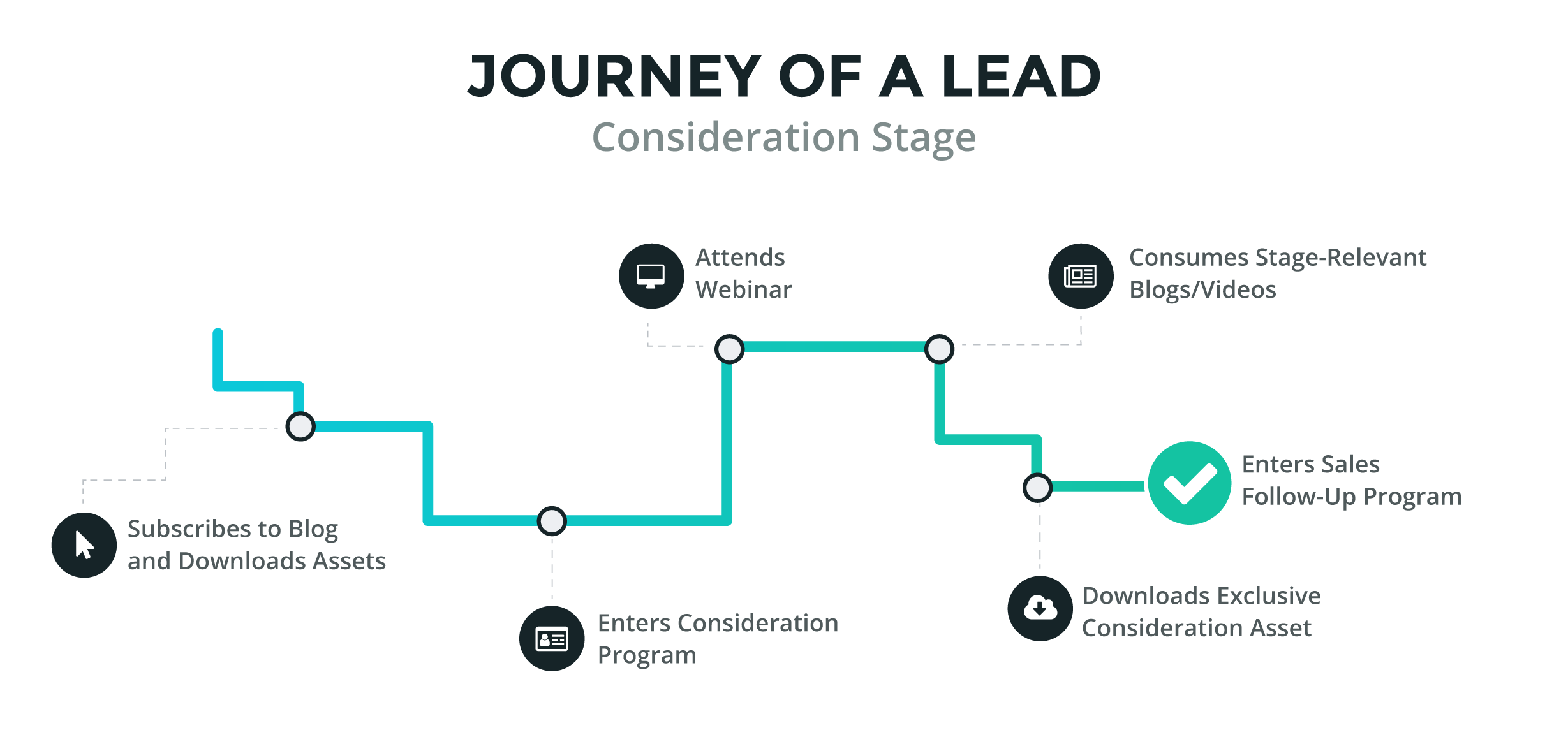
The trigger to enter this nurture program was based off lead scoring, with a focus on two primary actions of subscribing to the blog and downloading multiple assets. Then through a series of relevant content, eventually the program leads to a sales follow-up if they continue all the way through the program. Read this post for more about drip marketing campaigns.
As always… test and learn
If you set it and forget it, not only are you adding to the impersonal accusations that happen when marketers abuse automation tools, you’re also missing out. Just like with any other automation program, monitor results and learn from your programs to make them more successful.
A/B testing everything from subject lines to design, from CTAs to offers, will create the strongest possible programs for your blog subscribers.
Never forget, your blog subscribers are believers in your brand. They didn’t have to sign up, but they did… willingly. Out of respect, make sure you’re putting your best content marketing foot forward any time you communicate with them.
By using the powers of marketing automation, we arm ourselves with insights to personalize subscriber content based on their interests and stage. You’ll see better results in engagement and conversions if you put some effort into segmenting your blog subscribers.
